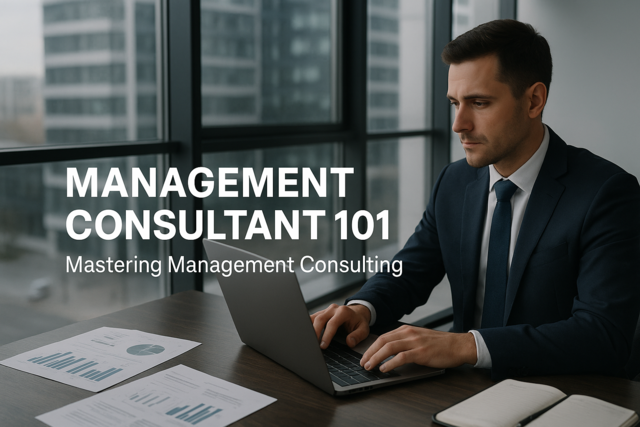As with any field or job, there are certain skills a person needs in order to be successful. Some can be obtained through training and education, while others develop with experience. It is also possible for a person to have some natural skill or ability that can be of use to their work. These skills are not needed just for success, but for them to accomplish some of the basic tasks and assignments given to them as a part of the job. Procurement management, as with anything else, requires particular skills for anyone who works in that field. This article will explore those needed for a career in procurement management and how a person can hone and develop their skills on their own.
Strong Communication
Strong communication skills are necessary for many professions and in many fields, so it's no wonder that it holds a high status for procurement. Those in the field need to be able to communicate with many different people--suppliers, company employees, co-workers, etc. A significant part of the job requires being able to clearly communicate what is needed to the appropriate parties. If a procurement team or one of their members has poor communication, it can cause problems like incorrect orders to arise.
Procurement communication shouldn't be limited to any one medium; such skills should cover both written and verbal communication. In some cases, non-verbal communication like body language may be involved depending on the environment. A person's communication skills should be able to function with mediums like email, phone, traditional mail, etc. Keep in mind that many of the current modes of communication have their downsides and some companies have begun to shy away from them as a result. It is likely that new modes of communication may be present in a company that a procurement officer may be required to use as a part of their job, so it's best to familiarize oneself with whatever is available as it is needed.
Things change, or go awry, or simply happen in a way that was unexpected. Whatever the situation, it is sometimes necessary to adapt to the circumstances as they develop. The ability to be flexible can be very valuable in procurement management as such instances of change or unpredictability can arise. In many cases, circumstances that require a degree of flexibility are common in procurement--order mistakes or delays, inspection issues, natural disasters that wipe out supply routes, etc. Disruptions are common and yet you're expected to keep on going as if it is business as usual. If you're working in procurement management, you need to be able to roll with the punches as they come. Business leaders seeking staff for their company's procurement team will often look for someone who is level-headed and able to work under pressure, which are good indicators that a person is able to handle the conditions that require flexibility.
A significant portion of procurement involves strategizing and being able to plan accordingly. Being able to do so requires a bit of business savviness combined with just the right thinking. As a skill, strategic thinking is one of the most valuable tools a procurement officer can have. You need to be able to figure out how to handle the regular demands of the business so the procurement team is able to keep up. This means strategizing on new resources, suppliers, budgeting, addressing emergencies, and how to do all of it while meeting a deadline. Those in procurement are expected to be able to understand what risks are present in a situation and when taking a chance on something is both appropriate and worth it. They also need to be able to apply their knowledge to the business' performance in order to help them continue or improve. This skill is often combined with flexibility, as the two play off of one another and often come in handy in times of crisis.
Management Skills
Any field that involves management will of course require management skills. This means being able to manage and oversee tasks, projects, and other responsibilities as they are assigned to you. Can you meet the requirements of the task at hand? Can everything be done correctly or in the manner that they are needed? Can they be done on time, with results delivered to the appropriate parties? While circumstances may impact your ability to do so, those with good management skills should be able to positively (or at least confidently) answer those questions. If you're unable to provide an answer under any circumstances, normal or otherwise, then you probably need to reevaluate your abilities and make improvements. In a large company, there can be a lot of tasks that a procurement management team needs to juggle at any one time. You really need to be able to manage your regular responsibilities and handle anything that is thrown at you, without it compromising your work.
Most experts agree that analytic skills are a must in any kind of procurement or purchasing position. This is because there is often a ridiculous amount of information that those in procurement management encounter on a daily basis in the course of their duties. It often comes from all directions: from suppliers and vendors, different departments in the company, members of the procurement team, and even the goods and services being procured. The vast majority of that information carries value and has a purpose in procurement, but it can look like a mess of data to the untrained eye.
Analytics in procurement management requires some basic knowledge regarding finances and budgeting, standard supplier relationships, and interpretation of informational documents like data spreadsheets. The information provided in some of those things can contribute to the decisions a procurement officer or a procurement team needs to make, so being able to interpret and understand it as best as possible is necessary. There may also be additional tools and programs that a procurement officer uses as a part of their work and will need to be able to interpret the information provided by those things. Such tools may be a standard part of the industry (e.g. software) or they may be something that the business uses specifically. As a result, you should at least be aware of what is out there and what is currently in use if not familiar with the usage of those tools; training and education for those tools may be provided or required by the company as a part of your employment in some cases, but not always.
Negotiation
In its simplest form, procurement is an exchange. Procurement officers are paying suppliers for the goods and services they offer as a basic trade for what the company needs. Most of the time, it's a basic trade that doesn't get complicated beyond deciding on what is needed and making the arrangements for its delivery. However, you're not always going to be on the same page with the supplier regarding what both of you want or need. In those cases, procurement officers need to be able to negotiate in order to find some kind of middle ground. As there's often conflicting objectives between parties, things can get difficult very quickly. Negotiating means that you know how to compromise and how to stand your ground in order to get what you want. It's beyond being a major buyer or getting the occasional deal because of your status with the supplier, but actually getting your hands dirty and haggling with suppliers over the give and take in your relationship with them. For many businesses, that's an appealing skill in procurement because it shows that you can advocate on their behalf with suppliers and will act in their best interests.
Time Management
There is quite a bit in procurement that is time sensitive; goods and services are usually needed with in a certain time frame, and the cost tends to go up for the company the longer the wait. Being able to manage your time wisely and meet deadlines on time isn't just a good thing to do, but the company you procure for will expect it. When your job is to provide the things that a business needs to operate and you are not providing those things when they're needed, then it sets everything back. It's a domino effect of sorts; poor time management isn't just going to affect the procurement team, but everyone else that they work with. A manufacturing company, for example, without raw materials cannot create their product. Then that product can't go to the distributor, and then to the client. It's a delay throughout that affects everyone down the line.
In some cases, a delay can occur that is outside of your control. Inclement weather can delay shipping and damage transportation routes. An item could be out of stock or difficult to get outside of a particular frame of time. Schedules for a service could be completely booked for months. It's understandable and there's only so much that you can do on your own to prevent such circumstances. However, that should not be used as an excuse to let your time management abilities slack off when there is a delay. Work with what you've got as best as you can and try to keep everyone involved in the loop regarding what's going on.
The ability to collaborate or work well in team settings is a soft skill that is common to many professions, but is especially valued in procurement. It's a very rare occurrence for someone in procurement to work alone; at minimum, a solo procurement officer is collaborating with a supplier and a business. Even if there was minimal contact between the parties involved, there would still be a need for teamwork and collaboration in order for things to get done the way that everyone wants them to.
Teamwork is usually a collection of multiple intrapersonal skills that can include communication, management skills, and professionalism. Those skills are going to be necessary in order to foster healthy working relationships with anyone that you work with in procurement. As it's likely that a procurement officer is going to need to work with others--and quite possibly a lot of them, too--being able to work well and collaborate with anyone regardless of the circumstances is a must. Supply chains can grow exponentially and things can get complicated really fast; effective teamwork is likely what will help you get through the situation with the best results.
Professionalism
In any part of the business world, it's expected that you will conduct yourself in a certain way. Anything you say or do, your appearance, and your behavior all send a message and that can impact how you work with others. To some degree, professionalism is not so much a skill set but a standard to follow in the world whereas being able to be professional when circumstances call for it would be considered a skill. Knowing what is and isn't appropriate in a situation, recognizing such a situation, and being able to avoid accidental faux pas in a professional setting would all be skills related to professionalism. For many in procurement, professionalism helps them develop relationships with suppliers and vendors, which assists them in their work over time. It also often helps with the relationship between the procurement officer or team and the company they work for, which has its own value in times of emergencies.
Technology
Technology is everywhere in both the professional and personal spheres of life. Software and equipment have become a standard part of procurement management, and a familiarity with technology is crucial. Even if the business or company you work for is considered "low-tech", the suppliers you work with may not be. A general understanding of basic technology like scanners and electronic ordering are usually requirements in most procurement positions. However, there is new technology coming on the market every day and some of it can be used in procurement. As mentioned previously, you don't have to be an expert on every piece of tech or program that is out there, buy you should at least have a basic understanding of things. Stay on top of changes in the industry and take opportunities to learn when they arise to keep your technology skills up-to-date and sharp.
























